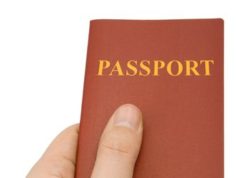
How to Effectively Defend a Deportation Order
Introduction
Deportation is a process by which a person who is not a citizen of a country is forcibly sent back to their country of origin. Deportation can result from a variety of reasons, including criminal convictions or violating immigration laws. Deportation orders can have serious consequences on the individual and their family, often resulting in the separation of families and the loss of employment and social connections.
However, there are ways to defend a deportation order and prevent the forced removal from a country. In this article, we will explore the various strategies and steps involved in effectively defending a deportation order.
Understanding the Deportation Process
Before discussing the strategies for defending a deportation order, it is important to understand the legal process involved in deportation. Typically, deportation proceedings begin with the issuance of a Notice to Appear (NTA). The NTA is a written notice from the Department of Homeland Security (DHS) stating the reasons for the initiation of deportation proceedings against the individual. The NTA will also provide the time and location of the hearing and the specific charges against the individual.
Once the hearing begins, the individual will appear before an immigration judge who will review the case and determine whether the individual should be deported or not. The immigration judge considers various factors such as the individual’s criminal history, length of stay in the country, family ties, and any other relevant details that may impact the individual’s case.
Strategies for Defending a Deportation Order
1. Seek Legal Representation
The first step in defending a deportation order is to seek legal representation. A qualified and experienced immigration attorney can assess the case, identify the legal options available, and represent the individual in the deportation proceedings.
Legal representation is critical in defending deportation orders as immigration laws and proceedings can be complex and difficult to navigate. An experienced immigration attorney can argue the case in favor of the individual and identify any legal loopholes or inconsistencies in the government’s case.
Moreover, an immigration attorney can provide support and guidance throughout the proceedings, offer advice on legal issues, and ensure that the individual’s rights are protected throughout the process.
2. Apply for Cancellation of Removal
Cancellation of removal is a legal defense available to individuals in deportation proceedings who have been living in the United States for a significant period of time and have demonstrated good moral character. Cancellation of removal is available to both lawful and unlawful individuals, but the requirements and qualifications for each differ.
To apply for cancellation of removal, the individual must demonstrate that they have been living in the United States for at least 10 years, have not committed any serious crimes, and that their removal would result in exceptional and extremely unusual hardship to their immediate family members who are U.S. citizens or permanent residents.
To apply for cancellation of removal, the individual must file Form EOIR-42B with the immigration court. The documentation required to support the application must be filed at the same time or within 30 days after filing.
3. Apply for Asylum
Asylum is a legal protection granted to individuals who are fleeing persecution or fear of persecution in their home country. Asylum is granted to individuals who can establish that they have a well-founded fear of persecution based on their religion, political opinion, race, nationality, or membership in a particular social group.
Asylum applications must be filed within one year of the individual’s arrival in the United States. However, exceptions are made for individuals who can demonstrate that they were unable to apply earlier due to exceptional circumstances.
Asylum applications are filed with the U.S. Citizenship and Immigration Services (USCIS) and are subject to an extensive review process. Applicants are required to provide documentary evidence and supporting documentation to establish their eligibility for asylum.
4. Seek Prosecutorial Discretion
Prosecutorial discretion is the authority of the government, primarily the Department of Homeland Security (DHS), to decide whether to pursue deportation proceedings against an individual. Prosecutorial discretion can be exercised for various reasons, including humanitarian reasons, low-level offenders, and long-term residents.
To seek prosecutorial discretion, the individual or their legal representative must submit a request, in writing, to the DHS and provide a detailed explanation of why they should not be deported. The request must be supported by evidence that demonstrates the individual’s ties to the community, family connections, employment history, and other relevant factors.
5. Seek Relief under the Convention Against Torture
Individuals who face deportation to countries where they may be subjected to torture or other forms of persecution can seek relief under the Convention Against Torture (CAT). CAT provides protection to individuals who would be tortured upon their return to their home country.
To seek relief under CAT, the individual must demonstrate that it is more likely than not that they will be subjected to torture if they are deported to their home country. The individual must also demonstrate that the government or officials of the country are either directly or indirectly responsible for the torture or persecution.
CAT applications are filed with the immigration court and are subject to an extensive review process. Applicants are required to provide documentary evidence and supporting documentation to establish their eligibility for relief under CAT.
Conclusion
Defending a deportation order can be a complex and challenging process. However, with the right legal representation and knowledge of the legal options available, individuals can effectively
A good deportation defense starts with the right system of support. A defendant might choose to go it alone in an immigration court, but as evidenced by the government’s insistence on “right to attorney,” such a measure is not recommended. Representation for a defendant can provided at the government’s expense, but it is suggested that the accused hires a deportation lawyer with an intimate knowledge of immigration law
In avoiding deportation, an individual may be able to accomplish his or her goal without ever setting foot in an Immigration Court. For one, under specific conditions, the accused may be granted a waiver for appearance in court. Prior to the actual hearing to decide the merits of one’s case, waivers for conditions removal outright may be filed with an Immigration Court or with the Department of Homeland Security.
Especially in cases where an immigrant is charged with some criminality beyond invalid status to live in the United States, a deportation defense may involve eyewitness testimony and circumstantial evidence. With exhibits presented before the judge and witnesses for the defense beyond the actual potential deportee, a defendant/legal representative should compile a list of these in document form. Witnesses for the defense who, by some explanation, cannot be physically present in the courtroom must also be approved beforehand by the court.
In the event a deportation defense fails, a motion for an appeal of the decision or a petition for a stay of removal must be submitted within thirty days of the judge’s ruling or receipt of notice of the ruling by mail. With specific respect to appeals, they will be heard by the Board of Immigration Appeals and may not be filed by anyone other than the defendant, his or her attorney, or a member of the DHS.

























